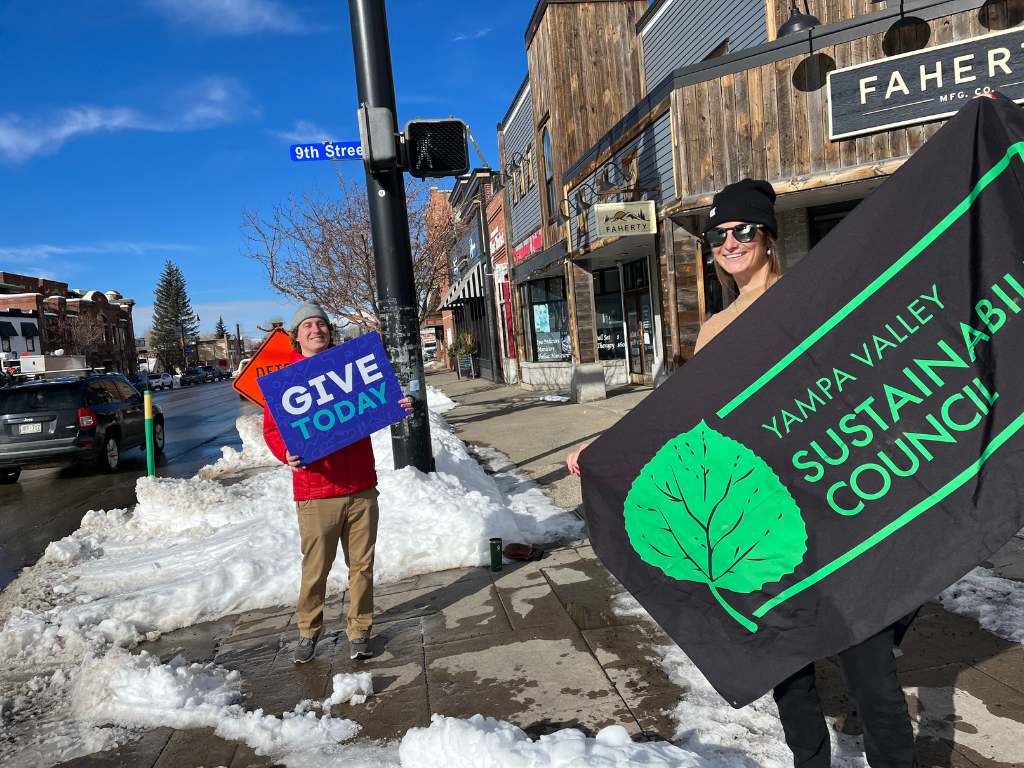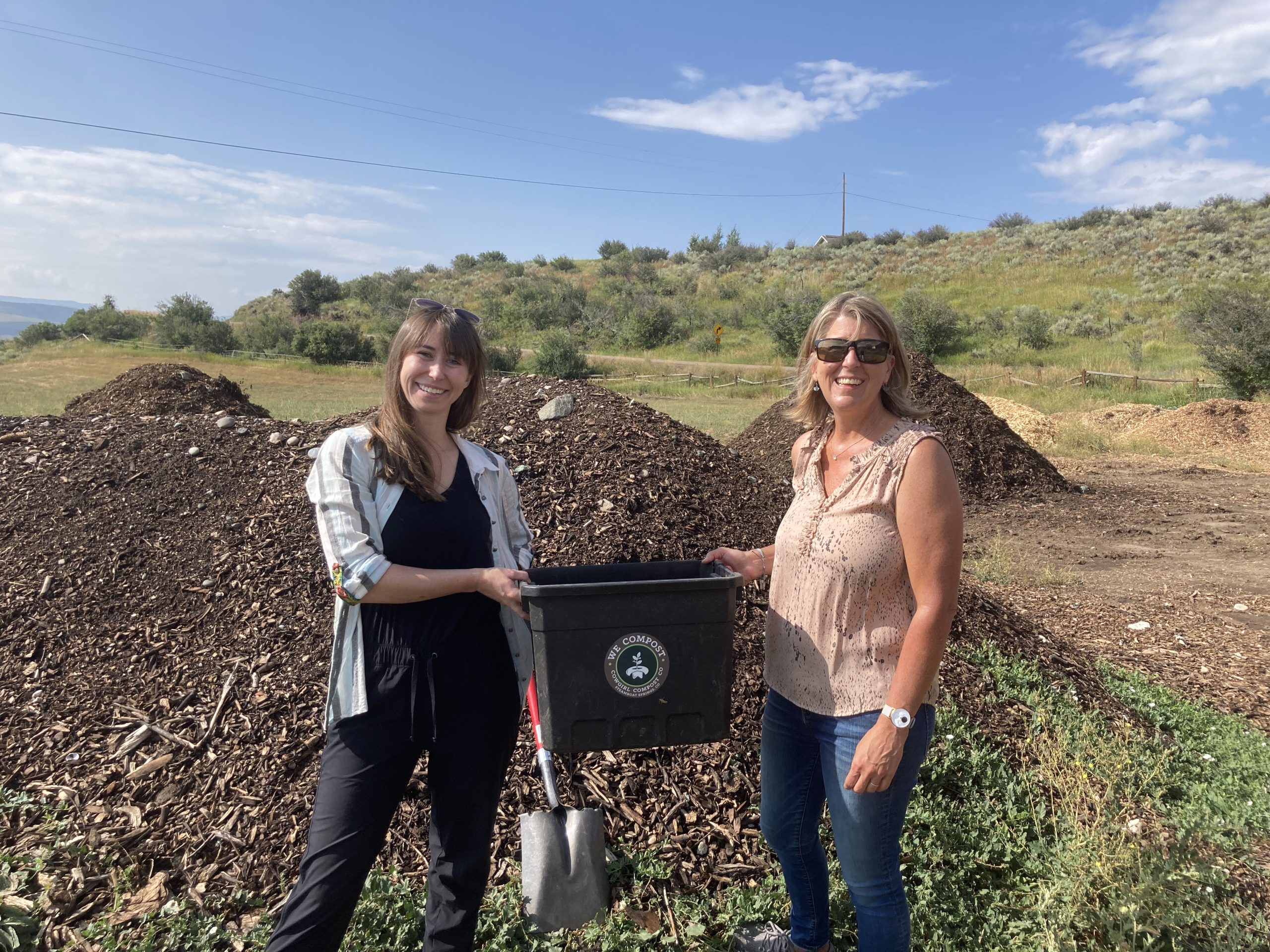JULY 31, 2019 BY
From the Steamboat Pilot & Today | July 30, 2019
Steamboaters join international movement calling on governments to respond to climate change
STEAMBOAT SPRINGS — Emi Cooper has seen the way that a changing climate impacts Routt County.
In her 16 years, she’s watched the weather swing from warm winters with light snowfall to cool, snow-filled winters with powder days at Steamboat Resort on Closing Day. She’s found the trails she rides on her mountain bike dustier after the snowpack melts off the mountains earlier. She’s seen the Yampa River’s flow fall to a trickle one year, then pulse at flood level the next.
Cooper said she doesn’t want to be on the wrong side of history. She started learning more about climate change and her own impacts on the atmosphere. She began composting, gardening and avoiding using plastic, and she adopted a vegan diet. She felt frustrated that it wasn’t enough.
“When lots of people think about climate change, nowadays, they think about bringing your reusable cup, your reusable bag and not driving, which is an important side, but the more important side of it is focusing on changing the system itself,” she said.
Earlier this month, she attended environmental policy professor John Holdren’s Seminars at Steamboat lecture, and she was able to have coffee with him through a Yampa Valley Sustainability Council event. She ran the idea of a local climate strike by him. He agreed it was a good idea. With support from other friends and family, she kicked off.
“Climate change is there. There’s scientific consensus that it’s happening. It’s happening now. It’s going to be irreversible in 11 years,” she said, referencing a warning issued by the United Nation’s Intergovernmental Panel on Climate Change last year. “That’s soon. That’s overwhelming in every way. The longer I waited, it just felt like the more likely it was that I was going to be on the wrong side of these movements.”
The U.S. is a powerhouse when it comes to climate change, Cooper explained. As a nation, the U.S. releases 15% of the world’s emissions from industry and fossil fuel combustion and are second only to China in emissions from these sectors, according to the U.S. Environmental Protection Agency. However, African nations, island nations and those closer to the equator, many of which are developing, are seeing higher economic damage due to climate change, National Geographic reports.
“The ones feeling it are the ones in the Pacific island countries right now and the ones in the African nations, and they’re not living the lifestyles that contribute to this climate change,” Cooper said.
So, she started protesting.
What: Fridays for Future climate strikes
When: 5 to 6:30 p.m. every Friday
Where: Routt County Courthouse lawn, 522 Lincoln Ave.
For those who would like to take action on climate change, Emi Cooper has a few suggestions:
- Attend the Friday protests.
- Start conversations with friends and family members.
- Contact your legislators and tell them climate change policy matters to you.
- Email Cooper at 11@gmail.com to find other ways to get involved.
She learned about the Fridays for Future movement on social media. Fridays for Future protests kicked off last year when then 15-year-old Swede Greta Thunberg began protesting on the steps of the Swedish Parliament every school day for three weeks, calling for government action to slow climate change, according to the Fridays for Future website.
Thunberg decided to continue the protest every Friday until Swedish politicians create policies to meet the goals set by the Paris Agreement. Thunberg’s protests have spread internationally, to several U.S. states, Colorado and Steamboat Springs.
She said the group has three goals:
- To protest government inaction on the climate crisis,
- To start a conversation about climate change,
- And to encourage others to take action individually or systematic change.
So far, there have been two Fridays for Future climate strikes in Steamboat, on July 20 and 27. Cooper plans to continue protesting at the Routt County Courthouse from 5 to 6:30 p.m. every Friday.
“(The Yampa Valley Sustainability Council) is proud of Emi Cooper for providing this opportunity for people of all ages to make their voices heard on climate change,” Sustainability Council communications and development director Anne Mudgett wrote in an email to Steamboat Pilot & Today. “She joins a strong global movement, started by youth, that is having a real impact on government decision-makers, and we’re glad she’s bringing the movement here to Steamboat Springs.”
Cooper said the protests are focusing on local energy policy. She hopes to see more renewable energy in the mix of power used locally. She’s told the Steamboat Springs City Council her concerns in public comment, and she’s been having conversations with council member Sonja Macys about increasing the area’s renewable energy infrastructure.
“We don’t have a deadline for when we’re going to be at 100% renewable (energy), and all-around Colorado, those deadlines are rapidly approaching for Boulder, Denver, Pueblo, everywhere else,” she said. “Aspen and Glenwood (Springs), for example, are already at 100% renewable energy use. We’re at 25%, which is decent. It’s something worth being acknowledged, but it’s not enough.”
Routt County’s electricity provider, the Yampa Valley Electric Association, gets most of its power from coal and natural gas, according to the organization’s 2018 annual report. Nineteen percent of YVEA’s energy comes from wind, 13% from nuclear power, 2% from solar and 4% from other renewables.
Cooper is not oblivious to the fact that coal powers a large segment of Routt County’s economy, but the way she sees it, the writing is on the wall for coal as a fuel source. She hopes the local coal industry finds ways to transition employees into new jobs sooner, rather than later.
“We have to make this transition as easy as possible for them, and the more time we have to do that, the better,” she said.
She thinks that transition will become more difficult as the changes required to reduce emissions become more drastic. For example, if Hayden Station was required to close by government regulation, that compresses the timeline for utilities, mining companies and local governments to transition jobs and economies.
Cooper doesn’t plan on stopping her protests until the local government takes adequate action to slow climate change.
“I don’t see an end, but I am going off to college in two years,” she said. “That could be it. But whatever college I go to, there will probably be a protest there.”
To reach Eleanor Hasenbeck, call 970-871-4210, email ehasenbeck@SteamboatPilot.comor follow her on Twitter @elHasenbeck.






